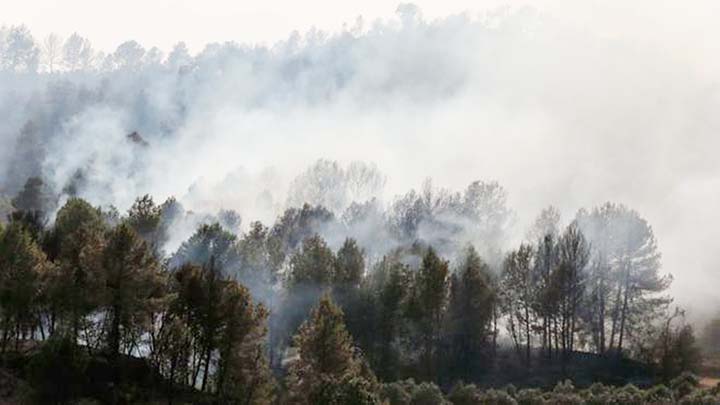
Extreme events linked to climate change, such as the heatwave in Europe this year, are occurring sooner than expected, an ex-chief scientist says.
Prof Sir David King says he’s been scared by the number of extreme events, and he called for the UK to advance its climate targets by 10 years.
But the UN’s weather chief said using words like “scared” could make young people depressed and anxious.
Campaigners argue that people won’t act unless they feel fearful.
Speaking to the BBC, Prof King, a former chief scientific adviser to the government, said: “It’s appropriate to be scared. We predicted temperatures would rise, but we didn’t foresee these sorts of extreme events we’re getting so soon.”
He said the world had changed faster than generally predicted in the fifth assessment report from the UN’s Intergovernmental Panel on Climate Change (IPCC) in 2014. He referred especially to the loss of land ice and sea ice, and to the weather extremes in which he said warming probably played a role.
Several other scientists contacted by the BBC supported his emotive language.
The physicist Prof Jo Haigh from Imperial College London said: “David King is right to be scared – I’m scared too.”
“We do the analysis, we think what’s going to happen, then publish in a very scientific way.
“Then we have a human response to that… and it is scary.”
Petteri Taalas, the secretary-general of the World Meteorological Organization (WMO), a specialised UN agency, said he fully supported United Nations climate goals, but he criticised radical green campaigners for forecasting the end of the world. It’s the latest chapter in the long debate over how to communicate climate science to the public.
Dr Taalas agrees polar ice is melting faster than expected, but he’s concerned that public fear could lead to paralysis – and also to mental health problems amongst the young.
“We are fully behind climate science and fully behind the (upcoming) New York climate summit”, he said.
“But I want to stick to the facts, which are quite convincing and dramatic enough. We should avoid interpreting them too much.
“When I was young we were afraid of nuclear war. We seriously thought it’s better not to have children.
“I’m feeling the same sentiment among young people at the moment. So we have to be a bit careful with our communication style.”
He said most of the changes were within the IPCC forecast range – although some – like polar ice – were at the top end of the range.
The polar scientist Andrew Shepherd, from Leeds University, agreed with that assessment.
He also said scientists should normally avoid emotional terms: “I would not use the term (scary) in general, but it is certainly surprising to see record (or near record) losses of ice. 2019 has been a bad year for Earth’s ice.”
It seems though, that some scientists believe their communications in the past have been failing to provoke an emotional response that would convince the public to act.
The Telegraph reports that psychologists working with the University of Bath are counselling growing numbers of young people suffering from eco-anxiety.
However, some scientists appear to believe that their communications in the past have been failing to provoke an emotional response that would convince the public to act.
Do scientists agree climate change is scary?

